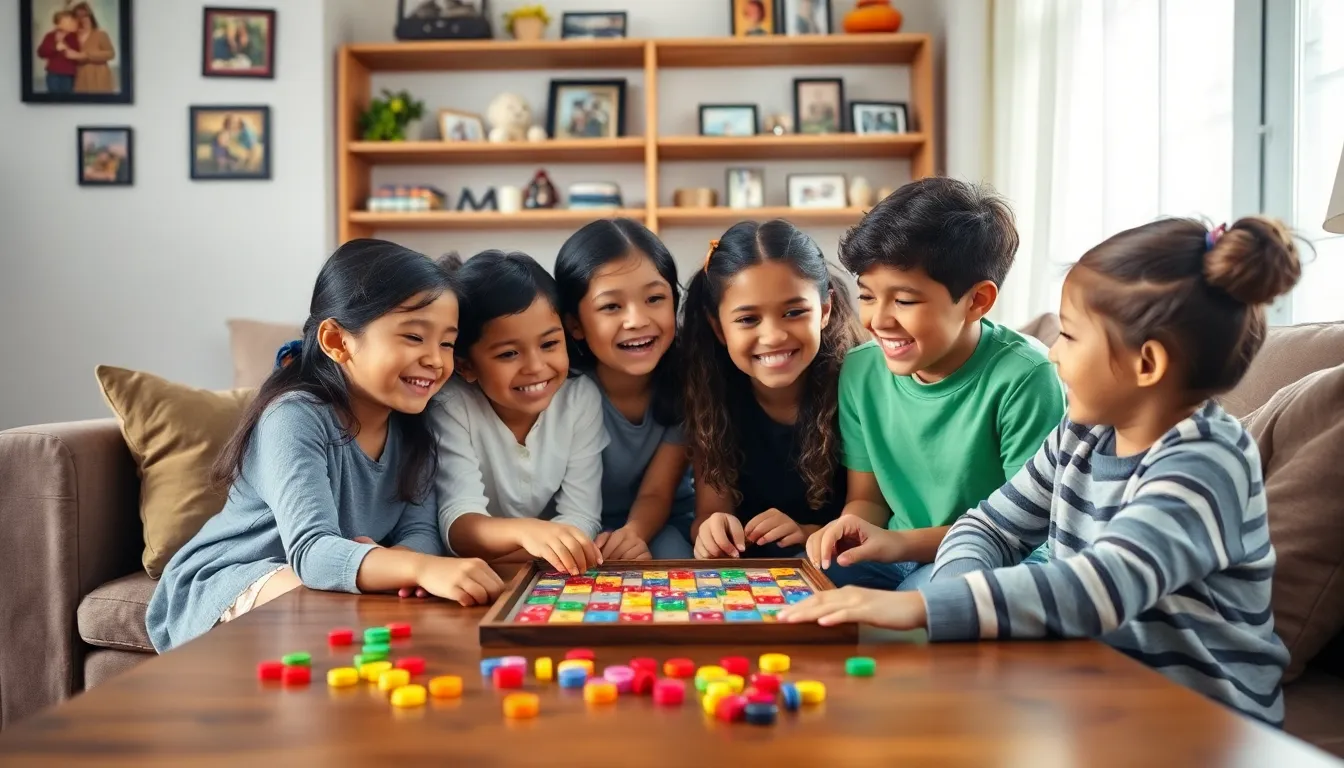Sibling parenting is like juggling flaming torches while riding a unicycle—chaotic yet exhilarating. When parents navigate the wild world of raising kids who share a last name, they quickly discover it’s not just about managing playdates and homework. It’s about fostering bonds that can rival the most epic buddy cop movies.
From sibling squabbles over the last cookie to heartwarming moments of teamwork, sibling dynamics shape childhood in ways that can be both hilarious and heartwarming. This article dives into the art of sibling parenting, offering insights and tips on how to cultivate a harmonious household while keeping your sanity intact. After all, who wouldn’t want to master the delicate balance of nurturing sibling love without losing their mind—or their favorite coffee mug?
Table of Contents
ToggleUnderstanding Sibling Parenting
Sibling parenting involves guiding and nurturing children who share a familial bond. This unique aspect of parenting encompasses various dynamics, including conflict resolution and collaboration.
Definition of Sibling Parenting
Sibling parenting refers to the process of raising children who are siblings, focusing on their relationships and interactions. Actively managing these relationships fosters emotional development. Navigating rivalry and cooperation presents challenges, yet it also cultivates strong family ties. Parents play a crucial role in establishing boundaries and promoting healthy communication among siblings.
Importance of Sibling Relationships
Sibling relationships significantly impact emotional growth and social skills. Strong sibling bonds encourage cooperation and teamwork. These connections provide a foundation for conflict management and problem-solving skills. Quality sibling interactions help children build empathy and understanding. Studies suggest that supportive siblings can enhance psychological well-being during childhood and later in life. Nurturing these relationships contributes to a harmonious family environment, benefiting parents and children alike.
The Role of Parents in Sibling Dynamics

Parents significantly influence sibling relationships. Their actions and attitudes shape interactions and emotional growth among siblings.
Encouraging Positive Interactions
Fostering positive sibling relationships enhances cooperation. Parents can promote shared activities like games and family projects. Creating opportunities for collaboration nurtures teamwork. Celebrating individual achievements helps build self-esteem. Parents should also model respectful communication during family discussions. Regularly recognizing moments of kindness strengthens bonds. Encouragement and praise for teamwork foster a supportive environment. Prioritizing quality time together allows siblings to connect deeply.
Conflict Resolution Strategies
Addressing sibling conflicts can lead to better understanding. Parents should guide children in expressing their feelings clearly. Teaching negotiation skills empowers children to find common ground. Implementing ‘time-out’ strategies allows each child to cool off. Encouraging problem-solving promotes independence and accountability. Parents can facilitate discussions about feelings after conflicts. Understanding each child’s perspective aids in conflict resolution. Encouraging forgiveness is essential for moving forward. Techniques like role-playing can also enhance empathy among siblings.
Benefits of Sibling Parenting
Sibling parenting provides unique advantages for both children and parents. Emotional growth flourishes through sibling relationships.
Emotional Support and Companionship
Siblings often offer invaluable emotional support. They share experiences and understand each other’s feelings, creating strong bonds. Trust develops as they navigate life’s ups and downs together. When facing challenges, siblings provide companionship, ensuring that no child feels alone. This support can lead to enhanced resilience in difficult times. Children learn to express emotions openly, knowing their siblings will listen and empathize. Overall, these relationships cultivate a sense of belonging that is crucial for emotional well-being.
Development of Social Skills
Siblings play a significant role in the development of social skills. They learn teamwork and cooperation through shared activities, fostering essential life skills. Conflict management becomes second nature as they practice negotiation and compromise. Observing each other promotes understanding and emotional intelligence. Children often imitate positive behaviors, enhancing their ability to communicate effectively. Having a sibling also encourages healthy competition, driving personal growth. Through these interactions, parents witness their children become more adaptable and socially aware, preparing them for future relationships.
Challenges in Sibling Parenting
Sibling parenting presents unique challenges, particularly in managing relationships and dynamics among children. Common issues include rivalry and feelings of jealousy, which can disrupt harmony in the household.
Managing Rivalry and Jealousy
Rivalry surfaces naturally as siblings vie for attention and resources. Parents can facilitate cooperation through shared responsibilities and teamwork-oriented activities. Open conversations about individual feelings often help each child express their emotions. Establishing consequences for negative behavior fosters accountability. Encouraging children to celebrate each other’s achievements reduces jealousy. Modeling respect and support influences positive sibling interactions.
Balancing Individual Attention
Balancing attention among siblings ensures each child feels valued. Designated one-on-one time strengthens emotional bonds and nurtures individual interests. Parents can rotate special outings or activities to guarantee equal time. Inviting children to share their successes during family meetings promotes a sense of belonging. Recognizing unique strengths boosts each child’s self-esteem. Active listening during discussions shows children their thoughts are heard and appreciated.
Sibling parenting is a dynamic journey filled with ups and downs. By nurturing strong relationships among siblings, parents can foster emotional resilience and essential social skills. Encouraging cooperation and open communication lays the groundwork for healthy interactions.
Addressing challenges like rivalry and jealousy with empathy and understanding helps maintain harmony in the household. With thoughtful strategies and dedicated time for each child, parents can create an environment where every sibling feels valued and supported.
Ultimately, the rewards of sibling parenting extend beyond the present, shaping children into compassionate and capable individuals who will carry these lessons into adulthood.



